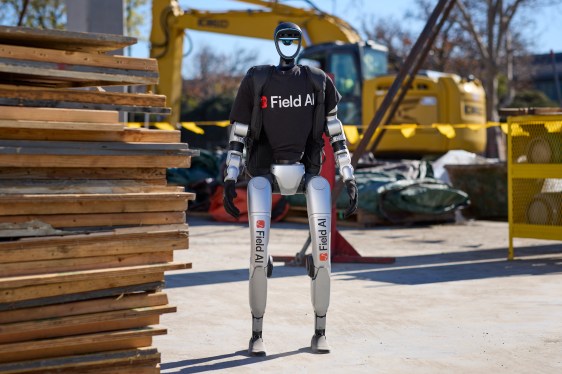FieldAI, based in Irvine, California, has raised $405 million across multiple previously undisclosed funding rounds. The company is developing what it calls “foundational embodied AI models,” which are essentially robot brains designed to help a wide range of machines, from humanoids and quadrupeds to self-driving cars, adapt to new environments.
The funding was announced on Wednesday. The most recent round, which raised $314 million in August, was co-led by Bezos Expeditions, Prysm, and Temasek. Other notable backers include Khosla Ventures, Intel Capital, and Canaan Partners.
Unlike traditional AI that processes text or images, embodied AI refers to artificial intelligence that controls physical robots moving through real-world environments. FieldAI builds “Field Foundation Models,” which are general-purpose embodied AI models rooted in physics. This approach is designed to give robots the ability to quickly learn and adapt to new environments while being conscious of risk.
The company’s founder and CEO, Ali Agha, stated that the mission is to build a single robot brain that can generalize across different robot types and a diverse set of environments. He explained that achieving this requires managing risk and safety as robots enter new environments, a fundamental gap in traditional robotics models that were not designed to handle such concerns.
Agha believes the key to enabling robots to safely learn in new situations is to incorporate a layer of physics into the AI models. This provides robots with a second set of information to pull from when making decisions, especially in unfamiliar settings, rather than just reacting to a model’s next instruction as traditional systems do. He emphasized that while a small amount of AI hallucination may not be detrimental in some circumstances, it can be critical for robots operating in dangerous environments or alongside people.
This new layer allows the system to understand how much it knows and how confident it is in its decisions. Agha says that once the network has access to that information, it starts making much safer decisions. A customer can define their own risk threshold, and the robot will react accordingly.
Agha has been working on this concept for decades across various roles at organizations like NASA and the Massachusetts Institute of Technology. He decided to launch FieldAI after achieving a technological breakthrough that allowed one robot brain to work across different types of robots performing both the same and individual actions.
Since its launch in 2023, FieldAI has secured contracts across several industries, including construction, energy, and urban delivery. The company has declined to disclose any customer names. The new funding will support research and development while helping the company ramp up production to deploy its models to customers and expand its reach abroad.
Agha compares FieldAI’s approach to human evolution, noting that humans evolve to perform various tasks in different environments and have the ability to rapidly learn. He believes this is a necessity in robotics, and while it is possible to optimize for one specific use case, that is not the market FieldAI is pursuing.

